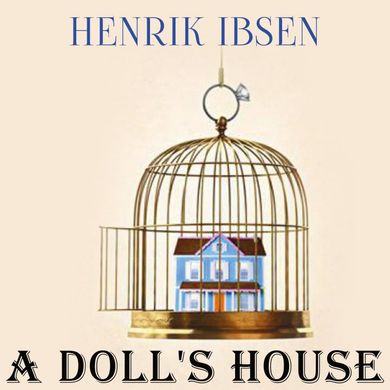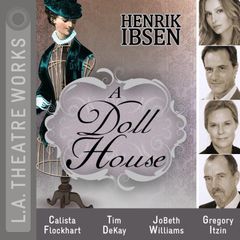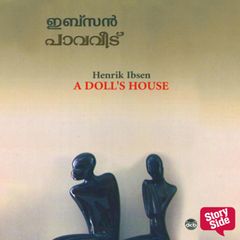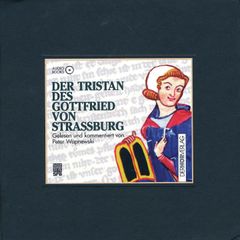- Audiobook
- 2025
- 2 hrs 23 mins
- Strelbytskyy Multimedia Publishing
Title
A Doll's House
Description
A door slams, and the echoes never fade. Henrik Ibsen's A Doll's House (1879) is a play that doesn't shout—it lingers, unsettling and undeniable. Beneath the surface of a seemingly ordinary household lies a quiet storm, gathering strength with every polite exchange, every carefully placed smile.
Nora Helmer is a wife, a mother, a woman adored. Her home is warm, her life is comfortable, her husband sings her praises. But when a long-kept secret begins to unravel, so does the delicate balance of her world. What happens when the roles we play no longer fit? When the words we speak don't match the voices inside us?
Ibsen doesn't lecture, doesn't plead—he simply opens a door and lets us look inside. What we see is up to us. Is it a tale of liberation or betrayal? A tragedy or a beginning? More than a century later, the questions still stand, just as urgent, just as sharp.
With A Doll's House, Ibsen didn't just write a play. He set a stage for countless conversations, forcing audiences to lean in, to question, to wonder. And when the final moment comes, when the door closes behind Nora, it isn't just her world that shifts. It's ours, too.
On public lists of these users
This audiobook is not on any list yet.
Product details
Publisher:
Author:
Title:
A Doll's House
read by:
Language:
EN
ISBN Audio:
4069828205734
Publication date:
February 27, 2025
Keywords:
Duration
2 hrs 23 mins
Product type
AUDIO
Explicit:
No
Audio drama:
No
Unabridged:
Yes
About the author:
Henrik Ibsen (1828–1906) was born in Norway on March 20. The son of a once-wealthy merchant whose fortunes collapsed, young Henrik learned early that respectability was often just a costume, a theme he would later unravel with surgical precision.
At twenty-one, he moved to Oslo (then called Christiania) with dreams of becoming an artist, only to be drawn into the world of theater. His early plays struggled to gain recognition, and after years of trying to make a name for himself, he left Norway for Italy and Germany.
Distance gave him clarity, and it was abroad that he forged his legend, peeling away the polite veneers of bourgeois society in works like Brand (1866), Peer Gynt (1867), and—most famously—A Doll's House (1879), where Nora Helmer's final, door-slamming exit sent shockwaves through the world.
Ibsen returned to Norway in his later years, a reluctant national hero, celebrated but still unyielding. His later works—darker, more psychological, and just as uncompromising—cemented his place as the father of modern drama. Even after his death, his characters remained as relevant as ever, their struggles echoing in theaters, classrooms, and conversations across the world.
A playwright of masks and mirrors, Ibsen held up a glass to society—and, more uncomfortably, to the audience itself.






















































